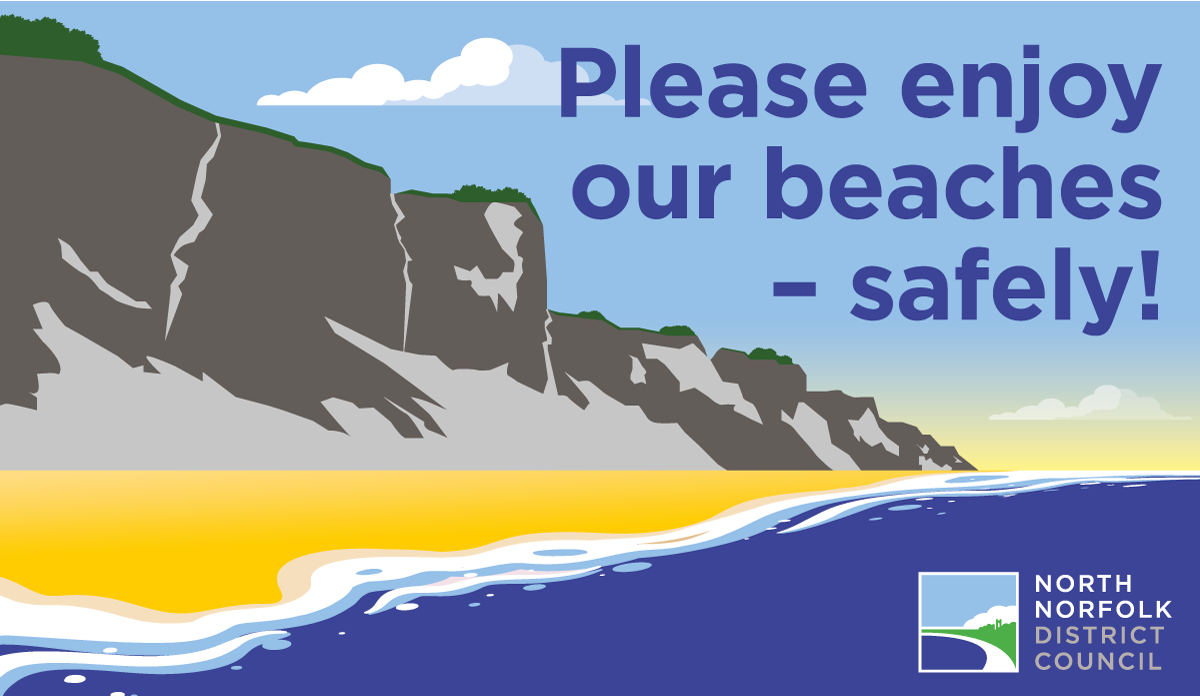Coastal safety
If you are heading to our beaches, take a look at how to stay safe with advice and tips

How to stay safe on the beach
The RNLI and Coastguard help to keep North Norfolk beaches safe.
If you see someone in trouble, dial 999 and ask for the Coastguard.
The RNLI page on Beach Safety offers the best tips and advice on avoiding beach dangers.
Tides
It is your responsibility to check the tides. Always check the times before heading to the coast.
Whilst we cannot verify the correctness of the information from the following sources, we have provided links to several tide timetables, available online, which may be able to assist you:
Respect the Water
If you find yourself in difficulty when in the sea, remember the Float to Live guidance from the RNLI's Respect the Water campaign.
Surfing
North Norfolk can be a beautiful place for surfing. Whether you are a beginner or an experienced surfer, you can never be too careful when it comes to surf safety. The RNLI page on surfing has safety advice to help make the surf a safer, friendlier and fun place for everyone.
Inflatables
When heading to the beach, inflatables are not advisable on North Norfolk beaches. With some powerful currents, you can be swept into difficulty very quickly. The RNLI has expert guidance on the bringing of inflatables to the beach.
Cliffs
Please do not use the cliffs as a shortcut to the beach or vice versa. Always use the access steps and slopes provided. The cliffs along North Norfolk are incredibly delicate in places and are prone to slippage and collapse. Do not stand too close to the base or edge of the cliffs. If you notice significant cliff slippage, please report it to the Council.
Related links
- Beaches with lifeguards on patrol - check the coverage on the beach you are planning to visit.
- Cold water shock - what are the risks, what happens to your body and how to minimise the risk.
- How to cope in hot weather - most of us welcome hot weather, but when it's too hot for too long, there are health risks.
- Know the risks - it is easier than you think to get into trouble in the water. Get to grips with the common risk factors and find out how to minimise them.
- Tides - tide times and heights vary throughout the month and can easily catch you out if you have not checked them.
- Water activities - the RNLI safety advice covers a broad range of water activities to help keep you safe at the coast.
- Waves - waves are great fun, but they can be dangerous. Understanding how they work will keep you safer.
Still need help?
Visit our contact us page for further assistance about our popular services and information.
